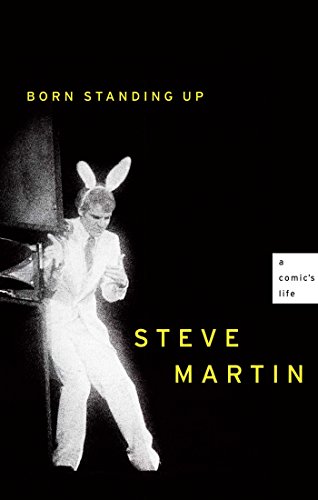on
Everything needs a revolution: Steve Martin was 'Born Standing Up'

Born Standing Up is Steve Martin’s autobiography about his stand-up days. He takes you from childhood (and issues with his dad) all the way through to the days when he was the highest ticket grossing stand-up comic of all time. And then, the moment at which he walks away from stand-up forever and never looked back.
By the way, did you realize that he was the highest grossing stand-up comic of all time? I didn’t know that until the hooplah around this book got going.
Even if you’re not interested in stand-up, there’s a reason why you might be interested in this book: it’s the story of reinventing an artform. He talks about how he went from being a normal comic who did sketches, told jokes and used punchlines. Eventually, he became the creator of what Rick Moranis called “anti-comedy.”
Steve Martin describes his approach variously as creating tension that never gets released, memorable strangeness and killing. Okay, he was trying to kill. Whatevs. I heard him talking about this on NPR at some point. He said that he got a lot of his ideas for changing comedy when he was studying Philosophy in college because Philosophy taught him to question everything (including Philosophy, incidentally).
Years ago, I saw Martin in Book Magazine, talking about how writing was really his first love, but that is not how he tells the story in this book. He tells a story about how performing captivated him from his earliest days. You can also tell in his book, as it is not the most compelling one that I’ve ever read, if the story itself hadn’t been so intriguing.
His attempt to incorporate his relationship with his family into the story just came out as forced. Critical moments, like when he left comedy, come out as a little obtuse. Sometimes, time seems to move around without any sort of indication, and, really, it just seems sometimes like there is really more depth to the story than he is quite managing to tell you.
That said, I liked Born Standing Up a great deal. It’s such an important story that it still stands out even with a less than virtuoso telling.
I listened to the audiobook version, narrated by Martin himself, which really pays off when he reprints old bits or even some of his songs. It restores your hope that no artform necessarily needs to be quite dead.
Martin’s autobiography might even trick you into believing that you could be the one to rejuvenate any other old dying form. If you just think about it enough. Scratch that, if you obsess about it enough.